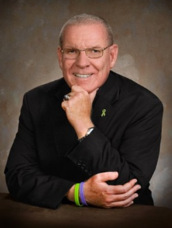Hospital Chaplains and Meditation Rooms Can Assist in Holistic Care
Written by |

Throughout my son Cullen’s pulmonary hypertension and heart-lung transplant journey, it has been my impression that hospitals try to treat the whole person — body, mind, and spirit.
Over the past 13 years, he has been treated at four hospitals in two states, and each facility has offered chaplaincy services and/or a quiet place designated for prayer, spiritual healing, and meditation.
For example, Lucile Packard Children’s Hospital at Stanford provides a beautiful sanctuary, healing gardens, and outdoor spaces. Patients, family members, caregivers, and medical staff from all faith traditions can go there to pray, meditate, worship, or simply appreciate quiet time away from the hospital setting.
To accommodate special diets and respect treatments not permitted by various beliefs, patients are commonly asked their religious preference during hospital registration. It also helps when arranging appropriate chaplaincy services for patients and families who might benefit from them.
Hospital chaplains are available to provide prayer and sacraments, and to read scripture from the Bible, Torah, or Quran. They can also serve as a listening ear or, if asked, provide spiritual, mental, or emotional advice and comfort.

Father David Klein, judicial vicar for the Diocese of Camden, New Jersey, and former hospital chaplain, poses for a picture. (Courtesy of David Klein)
Father David Klein, a family friend and Roman Catholic priest of 31 years, is currently the judicial vicar for the Diocese of Camden Tribunal, but he also has nine years’ experience as a hospital chaplain.
In an email interview, Fr. Klein shared insight into what serving as a chaplain is like and how he has personally helped many who have requested his presence.
He wrote, “When I served as an official hospital chaplain, I saw the hospital and everyone in it as my ‘parish.’ As a result, everyone in it was my responsibility on a spiritual level. Any time there was a call for a chaplain and none of the non-Catholic chaplains were available, I offered my services.”
He explained that when people are in crisis, their needs are essentially the same.
“They want someone to listen to their story and respond appropriately to their needs. As a Catholic chaplain, obviously, I also provided the strength of our sacraments to patients who requested them. When non-Catholic patients were not interested in my presence, I did what I could to contact another chaplain or their own minister.”
Fr. Klein described chaplaincy as primarily a ministry of presence.
“Simply being with patients, their families and even hospital staff is the most important service I provided. Quite often, there really wasn’t much else I could do but let them know I was available. A good chaplain listens to what the patient is not saying. Helping a patient, family, or staff member articulate what they often don’t understand, can provide a great deal of comfort.”
A common discussion Fr. Klein had with patients was letting them know that God’s love would see them through their difficult time of transition, be it diminished health, a disability, or death.
“Families most often want to know what the Church’s stand is regarding end-of-life issues. They will also attempt to get the chaplain to make that decision for them, but a good one will not be pulled into that discussion. Chaplains should simply present the Church’s position, then support the family in whatever decision they make. Hospital staff will also involve the chaplain in end-of-life conferences, to lay out the Church’s teaching so that they know how to guide a family confronting such a difficult choice.”
Fr. Klein admitted that sometimes being silent with a patient or their family is the only thing a chaplain can do.
“That allows the patient or the family to control the flow of the conversation at a time when they have little or no control over anything else.”
I asked Fr. Klein how the COVID-19 pandemic has affected the services chaplains offer.
“In most hospitals, nursing homes and other medical facilities unless the chaplain was on staff, priests were not allowed to minister to patients. There has been a lot of frustration on the part of chaplains and pastors at the inability to be present with Catholics as they were dying without benefit of the Sacrament of the Sick. Hopefully, that is beginning to change.”
Fr. Klein shared that the most difficult part of being a chaplain for him was seeing people reject the opportunity for healing that the church offers because they were too angry, bitter, or consumed by hurt.
“It was very painful, and I had to be aware that it was not directed at me personally.”
Dealing with people in crisis and trying to help them get their lives back on track was what Fr. Klein found most rewarding.
“Not restore it to what it was, as that is not possible. But helping people transition through a major life crisis and see them become stronger, happier, more fully functioning people of faith is beyond words to describe.”
***
Note: Pulmonary Hypertension News is strictly a news and information website about the disease. It does not provide medical advice, diagnosis, or treatment. This content is not intended to be a substitute for professional medical advice, diagnosis, or treatment. Always seek the advice of your physician or other qualified health provider with any questions you may have regarding a medical condition. Never disregard professional medical advice or delay in seeking it because of something you have read on this website. The opinions expressed in this column are not those of Pulmonary Hypertension News or its parent company, Bionews, and are intended to spark discussion about issues pertaining to pulmonary hypertension.




Leave a comment
Fill in the required fields to post. Your email address will not be published.